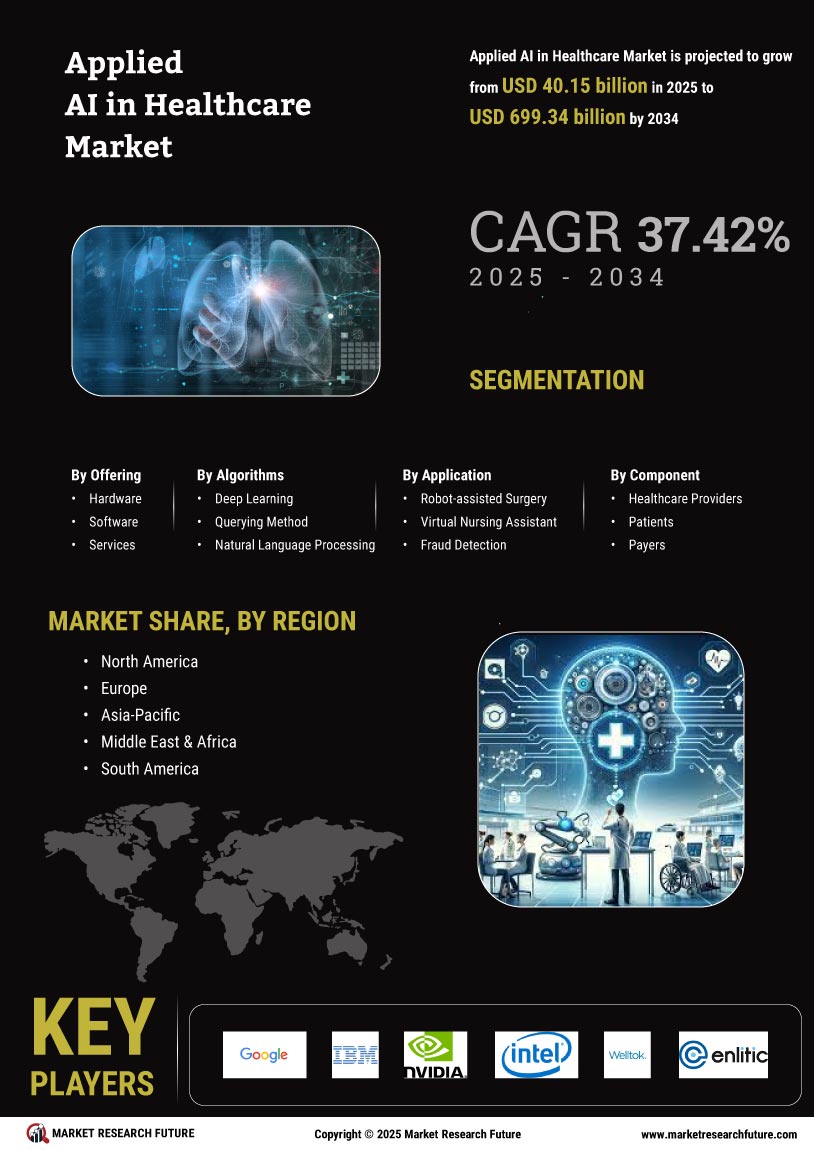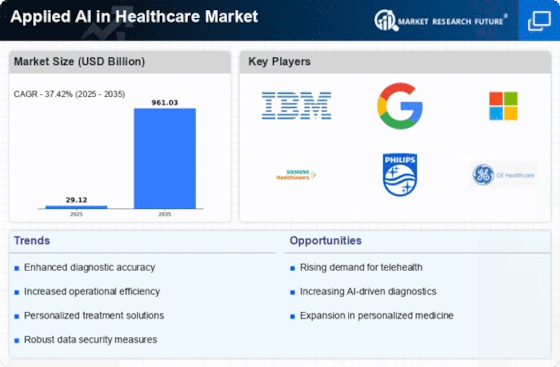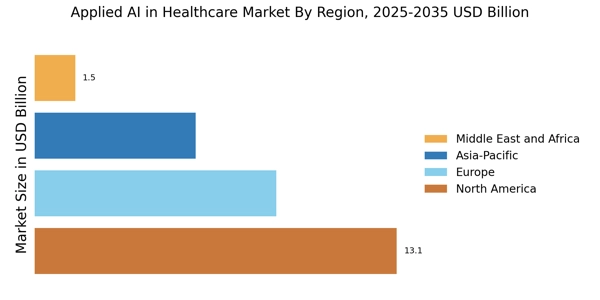Integration of AI in Drug Discovery
The integration of AI in drug discovery processes is emerging as a transformative driver in the Applied AI in Healthcare Market. By leveraging AI algorithms, pharmaceutical companies can expedite the identification of potential drug candidates, significantly reducing the time and cost associated with traditional drug development. Reports indicate that AI can decrease the drug discovery timeline by up to 50%, which is particularly crucial in addressing urgent healthcare needs. Furthermore, the ability to analyze complex biological data allows for more targeted therapies, enhancing the precision of treatments. This trend not only accelerates innovation in pharmaceuticals but also aligns with the broader objectives of the Applied AI in Healthcare Market to improve patient care and outcomes.
Growing Focus on Patient-Centric Care
A growing focus on patient-centric care is reshaping the landscape of the Applied AI in Healthcare Market. Healthcare providers are increasingly prioritizing personalized treatment approaches that cater to individual patient needs. AI technologies facilitate this shift by enabling the analysis of patient data to create tailored treatment plans. This trend is supported by research indicating that personalized medicine can lead to improved patient adherence and satisfaction. As healthcare systems evolve to embrace this model, the demand for AI-driven solutions that support patient engagement and personalized care is likely to rise. This shift not only enhances the quality of care but also positions AI as a vital component in the future of healthcare.
Regulatory Support for AI Innovations
Regulatory support for AI innovations is becoming a crucial driver in the Applied AI in Healthcare Market. Governments and regulatory bodies are increasingly recognizing the potential of AI technologies to enhance healthcare delivery. Initiatives aimed at creating frameworks for the safe and effective use of AI in clinical settings are being developed. For instance, regulatory agencies are establishing guidelines that facilitate the approval of AI-based medical devices and software. This supportive environment encourages investment and innovation in AI solutions, which could lead to a more robust healthcare ecosystem. As regulations evolve to accommodate these technologies, the Applied AI in Healthcare Market is likely to experience accelerated growth and adoption.
Rising Demand for Telehealth Solutions
The increasing demand for telehealth solutions appears to be a pivotal driver in the Applied AI in Healthcare Market. As healthcare providers seek to enhance patient access and convenience, AI technologies are being integrated into telehealth platforms. This integration facilitates remote monitoring, virtual consultations, and real-time data analysis, thereby improving patient outcomes. According to recent estimates, the telehealth market is projected to reach a valuation of over 250 billion dollars by 2027, indicating a substantial growth trajectory. The incorporation of AI into these platforms not only streamlines operations but also enhances the overall patient experience, making it a critical component of the Applied AI in Healthcare Market.
Advancements in Machine Learning Algorithms
Advancements in machine learning algorithms are driving innovation within the Applied AI in Healthcare Market. These algorithms enable healthcare professionals to analyze vast amounts of data with unprecedented accuracy and speed. For instance, machine learning models can identify patterns in patient data that may not be immediately apparent to human analysts. This capability is particularly valuable in predictive analytics, where early detection of diseases can lead to timely interventions. The market for machine learning in healthcare is expected to grow significantly, with projections suggesting a compound annual growth rate of over 40% in the coming years. Such advancements are likely to enhance diagnostic accuracy and treatment efficacy, thereby solidifying the role of AI in healthcare.

















